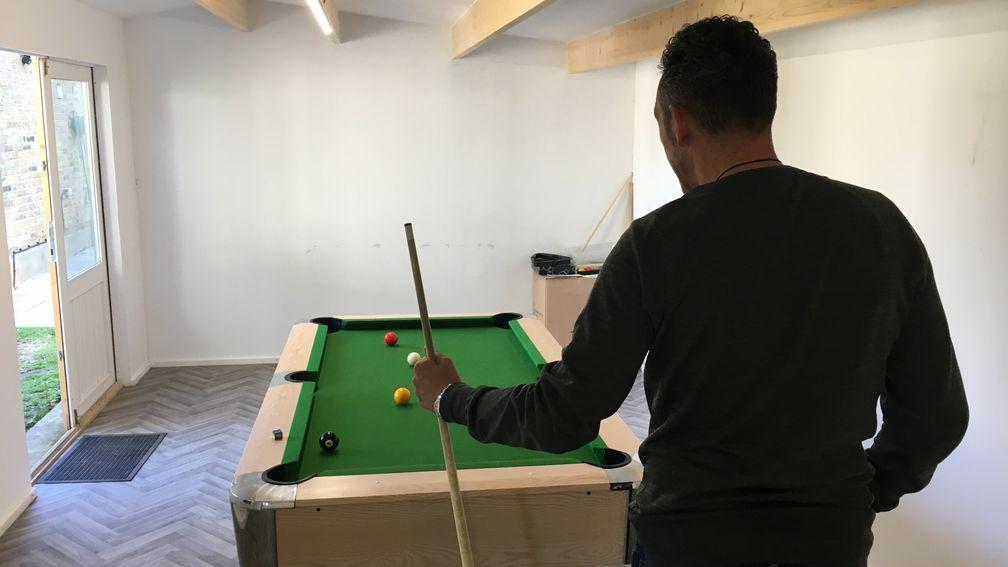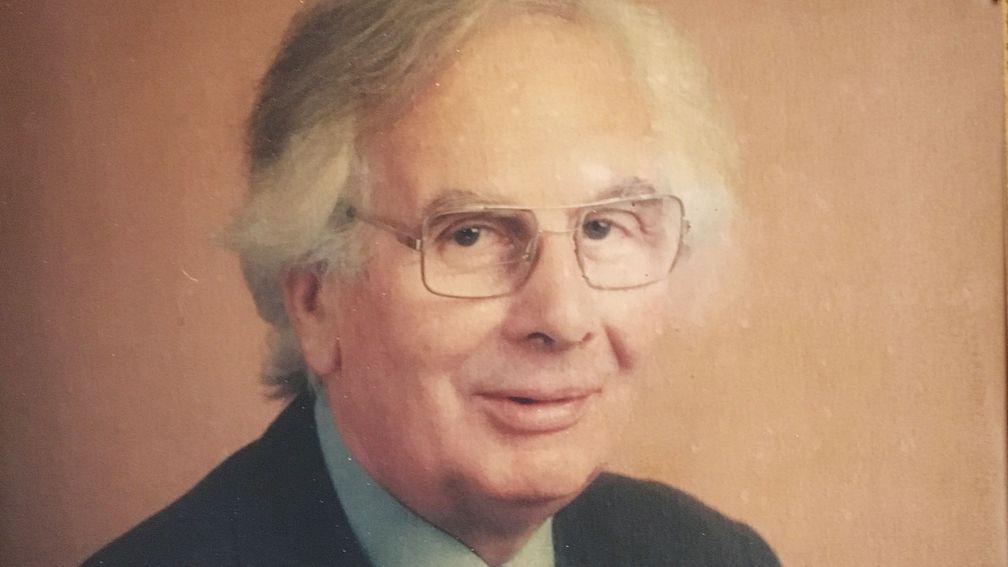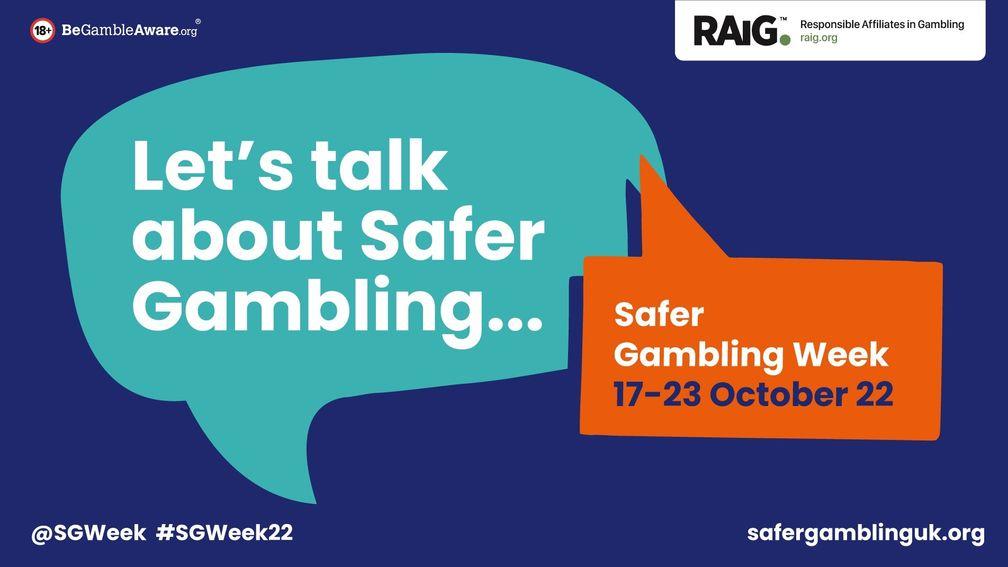Growing need for Gordon Moody's residential courses to fight gambling addiction

Last year the Gordon Moody charity marked 50 years of providing therapy for those suffering the worst effects of gambling addiction and this year the organisation has expanded its centres to include what chief executive Matthew Hickey believes is the only women-specific gambling treatment facility in the UK and possibly the world.
That, and the opening of a new centre in Manchester, have come at an important time for the organisation, which started out as a hostel for men with gambling addictions who had nowhere else to go and which has reported a sharp increase in applications for its treatment.
Hickey says the messaging coming from operators around safer gambling has improved over the last two years and points to the impact of the industry's engagement during the height of the Covid-19 lockdown.
"That had a major impact on the number of people coming forward," he says. "It made a big difference on the number of hits on our website and I think safer gambling should be an integrated part of the industry's core messaging all the time.
"We're heading in that direction and the industry, with its membership body the Betting and Gaming Council and other trade associations, can make big differences in that area."
Hickey describes Gordon Moody's relationship with the gambling industry as being "really strong and positive". He adds: "We know to be able to treat people we have to work closely with the industry. I want to be able to share profiling data and work with the safer gambling teams with referral pathways.
"So if they know somebody is in dire straits, rather than phone Gordon Moody they can just press a button and they are through to Gordon Moody."

Hickey joined Gordon Moody a few weeks before the pandemic hit in 2020, having spent more than 20 years in roles across a wide number of areas including drugs and alcohol, mental health, education, vocational skills, children's literacy and cancer treatment.
"When I took over as CEO it was evident Gordon Moody was a sleeping giant and the work that the previous CEO had done had prepared the organisation for its next chapter," he says. "I was in the very fortunate position of being able to start writing that next chapter."
Hickey says he wants Gordon Moody to be a data-driven organisation that markets itself better to bring people in to use its services. He adds: "As an organisation, the only thing we have to trade off is the quality of what we deliver and what we deliver saves people's lives.
"We know 70 per cent of people who come to us for residential treatment have attempted suicide, so we know that through our intervention those people have their lives saved. We know, therefore, that the quality of our products have to reflect that and improve."
Gordon Moody has this year opened a residential treatment centre specifically for women gamblers, as well as expanding its residential treatment capacity with a new Manchester service, to add to its centres in Dudley in the West Midlands and Beckenham in south London.
Hickey says: "When I took over Gordon Moody we had 18 beds we could fill instantly, which gave us the opportunity to treat 76 people a year.
"Through the work we are doing on our property in Dudley, through taking on Manchester, through opening the women's service in Wolverhampton once we have finished the building work there, we will be able to treat 270 people a year. And because of the way we have structured that, it gives us the opportunity to increase that volume to nearly 500 people a year if we need it."

Looking back over the data Gordon Moody has compiled over the last two years, Hickey says the charity has seen a change in the age and demographic profile of those applying for treatment but also in the complexity of their cases.
He says the situation is very different to the caricature of 20 years ago of someone suffering from problems with their gambling, someone going to the bookies and blowing their pay packet.
"The complexity of our clients has changed dramatically in that drink and, more so, drugs are becoming major factors," he adds.
Work with the likes of GambleAware has helped Gordon Moody create its 'complex cases pathway' which allows clients to have treatment for physical addictions before coming in for treatment for their gambling addiction.
"Previously, Gordon Moody would have said no to those people," Hickey says. "We would have said no to somebody who has a drink or drug problem, or a combination of problems, and now we don't."
Hickey says that Gordon Moody's increased marketing, along with the safer gambling messaging coming from the industry, has contributed to major changes over the last two years through raised awareness.
He adds: "The net result is that this year we are going to see well over a thousand applications for residential treatment. During my first year we were at 270. The year after that we were at 500 and it averaged at 500-600 before that.
"But through that combination of marketing, awareness and knowledge from a society point of view we are really seeing an increase of gambling addicts coming forward and saying, 'I need some real help here'."
The unique circumstances created by the Covid-19 pandemic are no longer present but Gordon Moody is now preparing for the effects of the latest major issue, the cost of living crisis.
Hickey says: "It will be another six or 12 months before we start seeing real evidence of that coming through our numbers. However, knowing the profile of our gamblers, knowing the profile of the people who come through us seeking treatment and the rationale as to why they have got into the position they have – particularly women – we are concerned and preparing ourselves for an ever increasing number."
Hickey, along with everyone involved in the gambling sector, is waiting for the government to publish its long-delayed white paper. He believes the delay is having a direct impact on Gordon Moody's income as organisations wait for some certainty before making donations.
"Let's say our turnover is £5 million, of which half comes from GambleAware and half comes from other funded sources," he says. "We are definitely seeing that other half way behind where we would normally see it."
As for what is going to be among the proposals in the white paper, Hickey believes the creation of an ombudsman dedicated to customer protection would be a good thing.
"An ombudsman will help with the lack of clarity about what falls into the role of the Gambling Commission, versus GambleAware, versus whatever else is out there," he adds.
However, Hickey is less sure about the creation of a statutory levy through which operators would pay for research, education and treatment of gambling-related issues.
He says: "I'm not for it. We don't know how much money we need ultimately in the treatment sector, or education, or research, because we don't know the size of the market. The other aspect which would worry me is who takes that levy, how that levy is administered and then how it is distributed."
However, he adds: "What we do need is a greater contribution from the sector toward research, education and treatment."
As for the future, Hickey believes Gordon Moody's specialism is in residential treatment and has no plans to expand into other areas.
"I think we will grow within the UK in terms of residential support and the number of people that we treat based on the demand," he says. "Where we will see greater growth is in opening up Gordon Moody 2.0 in Italy, France, Portugal or wherever."
He adds: "Gordon Moody will grow again over the next five to seven years but there will become a point where the early interventions, the education, the pre-gambling checks that get put in place, will see a decline in the number of people needing us.
"However, there will always be a need for a Gordon Moody, unfortunately."
Read this next:
Following Aidan O'Brien's advice is a sound way to conduct your betting

The Racing Post fully supports Safer Gambling Week and acknowledges it as an excellent opportunity for us all to reflect on whether we keep our gambling in check. Although Safer Gambling Week is only seven days, its message is ongoing and remains important. We have lots of resources available on our dedicated Safer Gambling page and more details can be found at safergamblinguk.org.
Published on inNews
Last updated
- Join Racing Post Members' Club for the very best in racing journalism - including Patrick Mullins' unmissable trip to see Gordon Elliott
- Join the same team as Ryan Moore, Harry Cobden and other top jockeys with 50% off Racing Post Members' Club
- Racing Post Members' Club: 50% off your first three months
- 'It’s really exciting we can connect Wentworth's story to Stubbs' - last chance to catch master painter's homecoming
- The jumps season is getting into full swing - and now is the perfect time to join Racing Post Members' Club with 50% off
- Join Racing Post Members' Club for the very best in racing journalism - including Patrick Mullins' unmissable trip to see Gordon Elliott
- Join the same team as Ryan Moore, Harry Cobden and other top jockeys with 50% off Racing Post Members' Club
- Racing Post Members' Club: 50% off your first three months
- 'It’s really exciting we can connect Wentworth's story to Stubbs' - last chance to catch master painter's homecoming
- The jumps season is getting into full swing - and now is the perfect time to join Racing Post Members' Club with 50% off